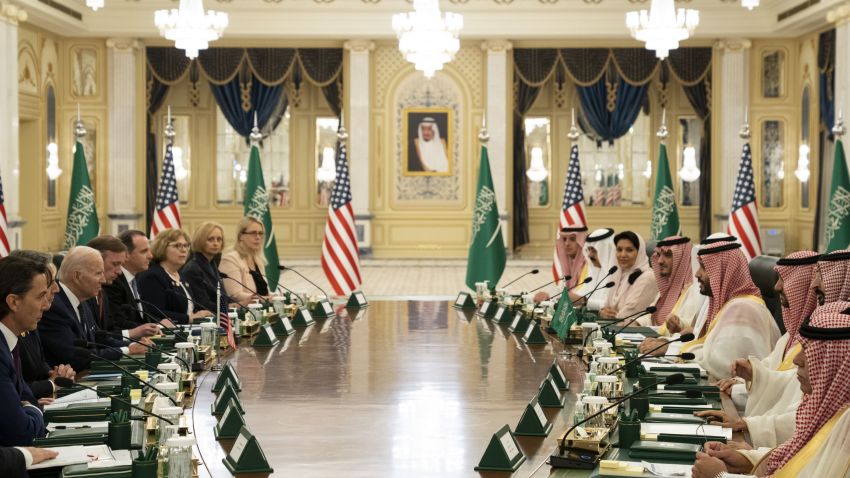In the decades after the end of World War II, it was a global region whose strategic importance drew in immense European and U.S. resources to defend authoritarian regimes. Despite growing doubts over the reliability of local partners, a succession of U.S. presidents declared that the West needed to stay the course because of the “value of … its production of materials that the world needs.” Added to that were fears that withdrawal would lead to a domino effect that would destabilize global security. Yet after long and costly wars, shifting strategic trends led to a waning of Western interest that culminated in total withdrawal.
The rise and decline of the West’s strategic commitment to Indochina from the 1950s to the 1970s should be kept in mind when examining U.S. and European relations with Saudi Arabia and the other Gulf monarchies today. Even as the final act of Washington’s struggle to keep its partners afloat in Vietnam, Cambodia and Laos played out, U.S. policymakers were shifting their attention to the Arabian Peninsula and its pivotal position in global oil and gas markets. The global energy price shock inflicted by Saudi Arabia’s oil embargo on several Western states in the wake of Washington’s support for Israel in the 1973 Yom Kippur War led to concerted efforts by U.S. diplomats to develop deep relationships with Gulf monarchies that have lasted to this day.
As the U.K.’s ability to police the region waned and the Shah of Iran’s regime fell apart in the late 1970s, the U.S. became the direct security guarantor for the Gulf region. Faced with internal challenges, including the seizure of the Grand Mosque in Mecca by Islamist extremists in November 1979, the Saudi royal family embraced these closer military ties with the U.S. through vast arms deals. While Bahrain, the United Arab Emirates and other Gulf states maintained close ties with British and French partners, they also develop shared military infrastructure with the U.S. that could deter any external or internal challenge to the region’s established political order.

